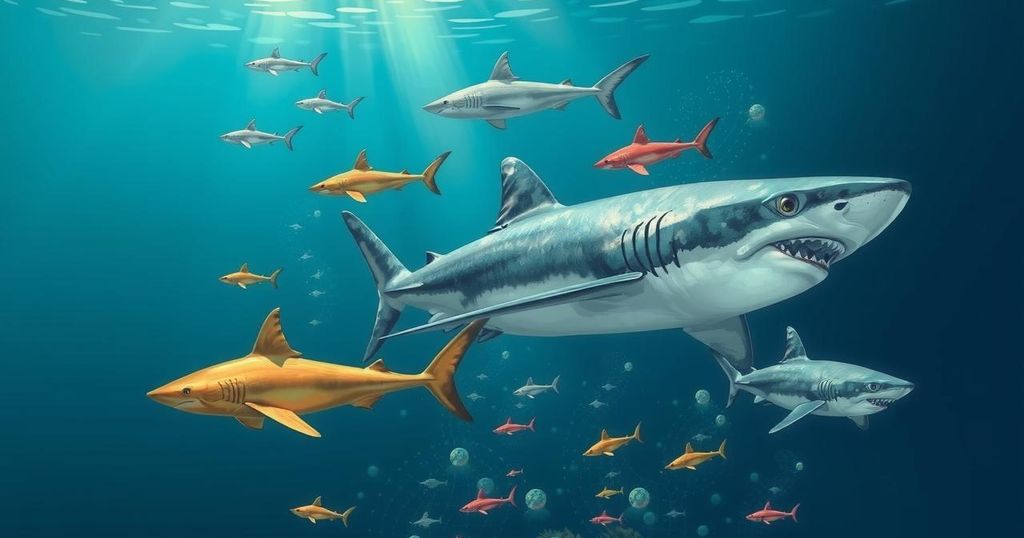The Crucial Role of Sharks in Ensuring Ocean Health
Sharks, essential to ocean health, have seen populations decline over 70% since 1970 due to overfishing. They play vital roles in regulating marine ecosystems, such as protecting seagrasses and enhancing nutrient flow. Conservation efforts targeting key species and community involvement are crucial for sustaining these apex predators and the biodiversity they support.
Sharks, the majestic and varied denizens of our oceans, play vital roles in maintaining marine ecosystems. With over 500 species from the tiny dwarf lantern shark to the colossal whale shark, these fascinating creatures help regulate species populations. Recent research shows that their decline, over 70% since 1970 due to unsustainable fishing practices, threatens ocean health. Tiger sharks, for instance, protect seagrass ecosystems by influencing grazers like sea turtles, ensuring a thriving habitat for juvenile fish and shellfish.
The ecological interplay continues with white sharks on the California coast, where their presence allows sea otters to thrive, promoting healthier kelp forests by controlling sea urchin populations that threaten these underwater realms. In coral reef ecosystems, sharks guide fish behavior, helping to prevent overgrazing of seagrasses and algae. Sharks also play a unique role in nutrient cycling, transporting essential elements across vast oceanic spaces, enhancing habitats where they feed and excrete.
Protecting sharks is essential, not only for their survival but for the myriad species that rely on them. Conservation efforts must target species with significant ecological roles, support local communities, and establish marine protected areas to shield these vital predators. Awareness of sharks’ critical contributions to marine environments can inspire collective action, ensuring oceans remain vibrant and resilient.
Through collaborative conservation efforts, we can foster environments where both sharks and their ecosystems thrive, preserving the rich biodiversity crucial for a healthy planet.
Sharks have existed for over 400 million years, dominating the ocean ecosystem with their diverse roles that influence marine life balance. Despite their importance, global shark populations are decreasing alarmingly due to overfishing and habitat loss. Research highlights their ecological significance, demonstrating how they maintain healthy ecosystems by controlling prey populations and facilitating nutrient transport. Understanding their decline is vital for devising effective conservation strategies to protect not only sharks but also the intricate networks of life they support in oceans worldwide.
In summary, sharks are more than just apex predators; they are crucial components of healthy marine ecosystems. Their roles in regulating grazers, facilitating nutrient flow, and maintaining habitat balance underscore the urgency of their conservation. As humans continue to impact ocean environments drastically, strategic and collaborative conservation efforts are imperative to safeguard sharks and the biodiversity they nurture. Ensuring a future where sharks flourish means establishing protective measures and promoting awareness of their ecological value.
Original Source: news.fiu.edu




Post Comment